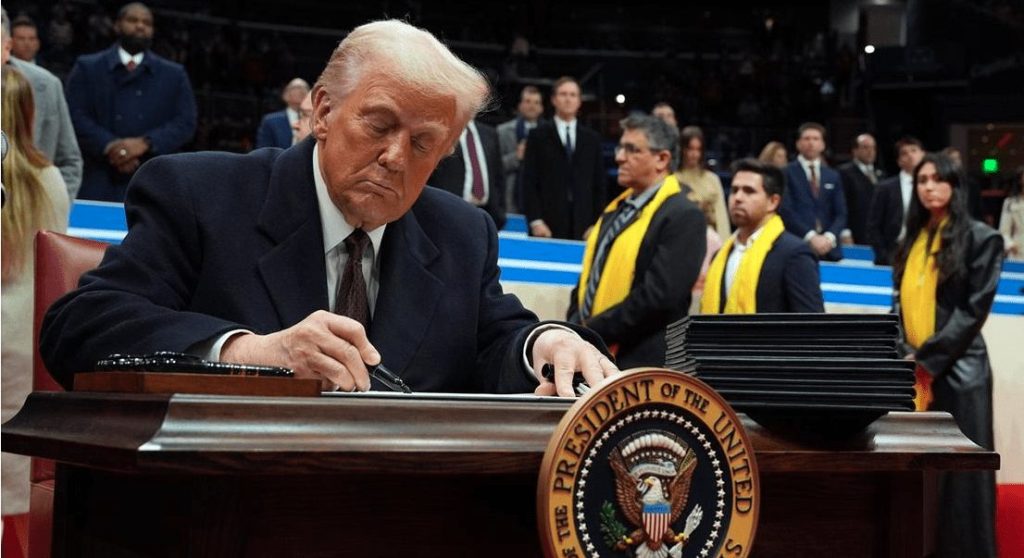
Lagos — President Donald Trump’s initial executive orders have set the stage for energy policy reversal, reinforcing many of the energy and environmental narratives central to his campaign, carrying substantial implications for the oil, gas, renewables, and climate sectors.
Matteo Mazzoni, Director of Energy Analytics at the commodities intelligence firm ICIS, highlights the clear tone set by President Trump within the first 24 hours of his administration.
“Oil Market Dynamics
The ‘drill baby drill’ slogan resonates with his base, but its practical impact on the global oil market will likely be limited. Announcements to rebuild the strategic petroleum reserve signal intent, but additional demand from this effort won’t be sufficient to rebalance the current global market, which remains oversupplied. The more significant risk lies in reigniting a market-share battle with OPEC+, which could destabilise prices. However, efforts to weaken the dollar – a stated goal of his administration – might inadvertently provide upward pressure on oil prices.
Natural Gas and LNG
Trump’s commitment to eliminating red tape around LNG export projects is set to accelerate long-term supply growth. Projects like CP2 LNG and Commonwealth LNG, which have faced delays under previous policies, could benefit from this deregulation. Yet, the market won’t feel these impacts immediately; permitting processes and investment decisions will still take months to materialise.
The global LNG market faces a looming glut. While U.S. developers might gain more certainty, their competitiveness will hinge on cutting project costs and securing commercial agreements amid rising international competition. Trump’s rhetoric on pushing Europe to buy U.S. energy highlights potential tension over the Methane Emission Regulations, which effectively act as a border tariff on U.S. exports.
Renewables and EVs
Despite efforts to eliminate federal incentives for renewables and electric vehicles (EVs), market forces will likely keep driving adoption. Falling battery costs and growing consumer demand will sustain momentum in these sectors. The real question is whether the U.S. will invest in domestic manufacturing or rely on imports. Tariffs may become a key tool in balancing this trade-off.
Paris Agreement
The decision to withdraw from the Paris Agreement was anticipated and will have minimal short-term impact. Over the past four years, U.S. contributions to global climate goals have been modest, and global climate progress has been driven largely by private sector innovation and international cooperation.
A Shifting Landscape
While these initial moves reflect a sharp policy reversal, the energy market has proven resilient. Long-term trends, including the rise of renewables and global decarbonisation efforts, will likely continue to shape the industry regardless of federal policies. Energy security, or energy emergency as Trump described it, which re-emerged as a key topic three years ago when the Ukrainian-Russian conflict forced Europe, and the world, to take stock, is firmly back on the agenda. It remains to be seen how these shifts will play out in practice and whether they align with technological trends and new consumption patterns.”



